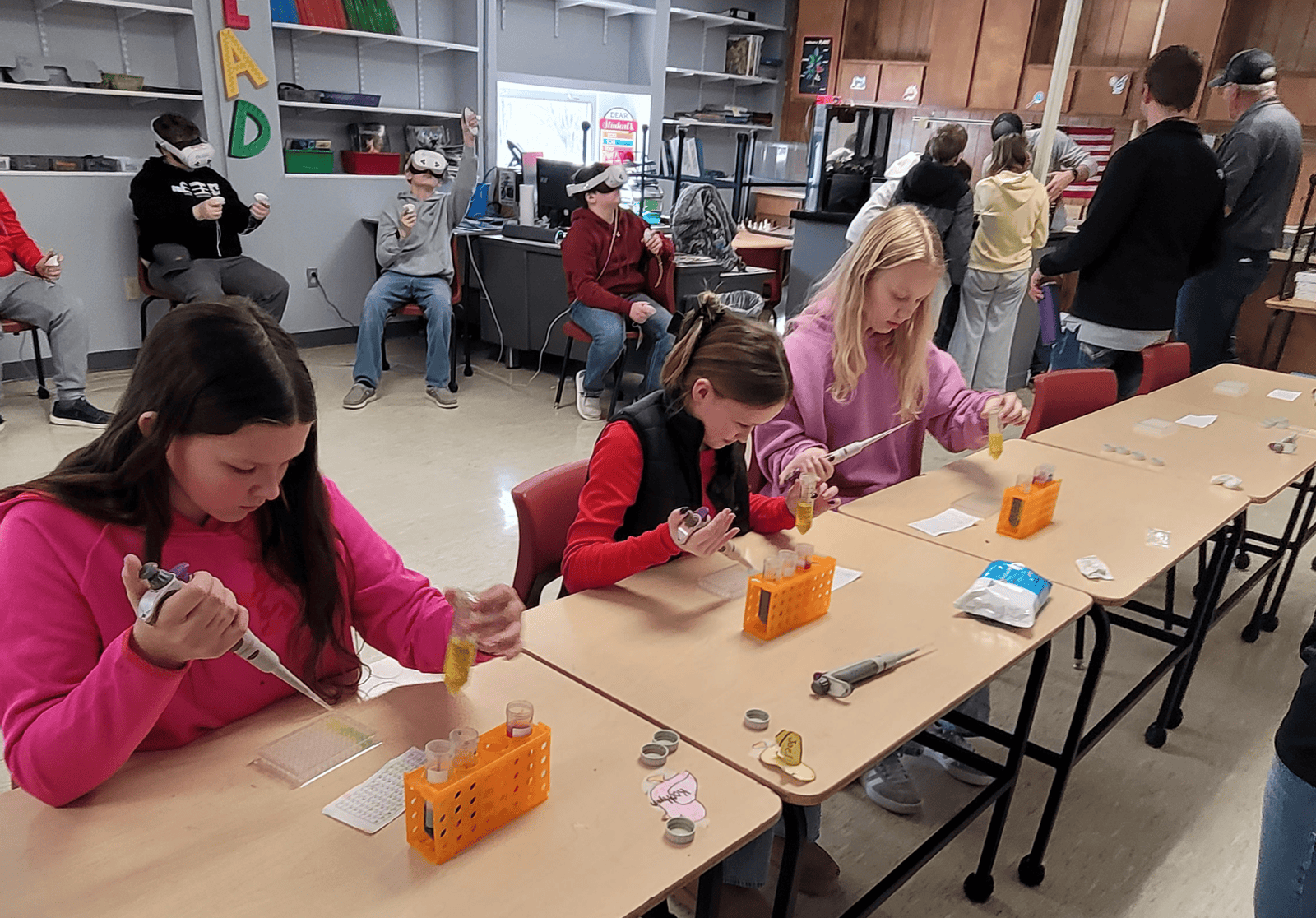MISSOURI BIOTECHNOLOGY ASSOCIATION - WHAT WE DO
Missouri Biotechnology Association (MOBIO) is the only statewide membership group that speaks with one voice to advance and champion the life sciences in Jefferson City, across the state, and in Washington, D.C. MOBIO represents most extensive and broadest cross-section of life science organizations including businesses, higher education, medical research, start-ups, agri-science and related firms involved in research, development, and commercialization of the life sciences. MOBIO serves to connect, develop, and advance the state’s bioscience community.
MOBIO members benefit from a strategic focus to support the enrichment and growth of the biosciences in Missouri through:

Statewide Network
MOBIO connections make a difference, specializing in meaningful business-to-business engagements and bridging:
- A network of diversified thought leaders
- Business leaders with policymakers
- Entrepreneurs with investors
- Members to greater market potential
Members connect at regional, national, and international levels with science, education, and commercial networks to advance business and enrich the industry.
MOBIO is the catalyst, accelerating growth and leveraging high-value relationships for our vibrant life sciences community.
Science & Policy
MOBIO advocates for Missouri’s life sciences and technology sectors. Maintaining a sophisticated understanding of current dynamics, MOBIO serves as your trusted voice for bipartisan engagement and leadership within the Missouri State Capitol.
- MOBIO forges meaningful relationships between public and private sector leaders to:
- Defend companies large and small
- Obtain and safeguard public investment
- Secure state funding for Missouri's life science industry
The strength of MOBIO's collective voice consistently delivers a compelling message to advance pro-science, pro-business legislative policy.


Workforce Development
PROSPER is a workforce development initiative, dedicated to Partnering Resources, Opportunities & Students for Powerful Employment Results. We proudly partner with Missouri Southern State University, MOSO Caps, and Missouri Western State University in the Science 2 Jobs (S2J) program and collaborate with BioSTL and BioNexus KC in the BIOTECH for MO program. PROSPER directly supports these programs and functions as a bridge extending additional assistance to rural and underserved communities within Missouri.
Thank you to the State of Missouri for its support and investment in the current and future growth of Missouri's life sciences.
Member Savings
MOBIO saves members real money, providing access to numerous partner organizations that offer significant discounts on relevant industry products and services.
- R & D
- Laboratory
- Finance & Administration
- Facilities & Operations
- Communications & Data
All MOBIO members are entitled to preferred purchasing power. There is NO fee to participate.

MOBIO Member Highlight
Meet the companies and organizations driving innovation and making an impact in Missouri's life sciences.

39 North AgTech Innovation District is a vibrant, diverse community of scientists, startups, and companies working in proximity with one another, sharing ideas, networks, and cutting-edge equipment and facilities. Our district is anchored by Bayer Crop Science and the Danforth Plant Science Center, and within our facilities, including the Helix Center BioTech Incubator, the BRDG Park and EDGE@BRDG buildings, more than 35 growing agtech companies call 39 North home.
Our district isn’t just a collection of buildings, it’s also a hub to connect people with new ideas and with one another, fostering a community that not only supports, but also helps to create and accelerate innovation. We invite you to come and discover why the world is watching 39 North.
39 North AgTech Innovation District is a vibrant, diverse community of scientists, startups, and companies working in proximity with one another, sharing ideas, networks, and cutting-edge equipment and facilities. Our district is anchored by Bayer Crop Science and the Danforth Plant Science Center, and within our facilities, including the Helix Center BioTech Incubator, the BRDG Park and EDGE@BRDG buildings, more than 35 growing agtech companies call 39 North home.
Our district isn’t just a collection of buildings, it’s also a hub to connect people with new ideas and with one another, fostering a community that not only supports, but also helps to create and accelerate innovation. We invite you to come and discover why the world is watching 39 North.
MOBIO Breakthrough

Join us for MOBIO's Breakthrough of the Month series, where we explore Missouri's new and sometimes hidden biotech industry.
This is a virtual learning platform for the greater life science community where we highlight and discuss novel discoveries, new business opportunities, and potential partnerships.
This is a FREE presentation that is open to those in the life-science community.
Are you interested in featuring your organization or discovery? Please reach out to us, via email.



